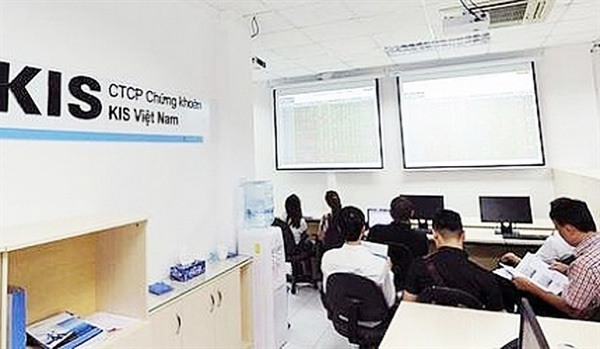Despite a general slowdown in foreign direct investment stemming from South Korea during the pandemic, investors from the country are nevertheless continuing their acquisition spree in Vietnam, with millions of US dollars being spent snapping up local groups.
 |
|
South Korean investors have invariably been near the top of the list when it comes to Vietnamese M&A.
|
Andrew D. Kim, manager of the Global M&A Center under the Korea Trade-Investment Promotion Agency (KOTRA), told an online conference last week that South Korean businesses are actively participating in the merger and acquisition (M&A) market in Vietnam.
Many investors from the country are focusing on consumer goods, industrial materials, and chemicals that accompany the growth of industrialisation and urbanisation in Vietnam, Kim explained.
KOTRA’s M&A Team has been supporting South Korean overseas investment in small- and medium-sized enterprises in recent times, covering cross-border M&As, joint ventures, asset deals, and business transfer deals. Last year, JW Pharmaceutical Corporation acquired Euvipharm Pharmaceutical with the assistance of the team in target defining, deal advising, and deal structuring.
JW Pharmaceutical formally launched Euvipharm JSC in Vietnam as part of its strategy to target emerging pharma markets. As a result, JW Pharmaceutical has become the first South Korean company to take over directly operate a Vietnamese pharma group.
Even though South Korea’s registered investment into Vietnam was reduced by 40.7 per cent during the pandemic in total, many large enterprises have revealed strategies to continue pouring investment into Vietnam, Kim of KOTRA told the conference.
In August for example, Korea Investment Private Equity announced it will pour an additional $200 million into Masan Group Corporation, Vietnam’s largest consumer goods group. The fund will participate in the Vietnamese group’s rights issues in a third-party placement and take a 2-3 per cent stake.
Once the deal is finalised, Korea Investment will be the latest South Korean shareholders of Masan Group along with the National Pension Service, conglomerate SK Group, and Seoul-based IMM Investment Corporation.
Meanwhile, SK Investment Vina III Pte., Ltd., a subsidiary of SK Group, has this year been increasingly raising its ownership in Imexpharm Pharmaceutical JSC.
A few months previously, SK Group announced an agreement with Masan Group to acquire a 16.26 per cent stake in VinCommerce, one of Masan’s subsidiaries, for a cash consideration of $410 million.
Wide range of fields
According to data from MergerMarket, which is a business development tool designed specifically for the M&A sector, South Korean investors have carried out 69 M&A deals in Vietnam since 2005, with a total value of $5.1 billion.
Son Won-sik, director of Korean Services at Deloitte Vietnam, pointed out that the growing middle class, coupled with future increased purchasing power for consumer goods, services, and healthcare, is an attractive point for foreign investors.
For the manufacturing sector, Vietnam is still a favourite destination for South Korean buyers thanks to the low labour costs, the legal reforms, a wide range of free trade agreements, and supply chain diversification.
Won-sik added that there will more deals involving South Korean investors in Vietnam’s healthcare and pharmaceutical fields. It is estimated that by 2050, 21.5 per cent of Vietnam’s population will be over 65 years old, leading to a huge demand for the health sector in the future.
Meanwhile, more financial institutions from South Korea are eyeing the local banking market following some successful deals, such as KEB Hana Bank’s purchase of 15 per cent in BIDV and Lotte Card’s full acquisition of Techcom Finance.
Vietnam’s banking utilisation rate is 31 per cent, relatively low compared to other countries, so there is still a lot of growth potential in this industry, Won-sik claimed.
Likewise, the energy and infrastructure sectors are also receiving great attention from domestic and foreign investors alike. Vietnam’s energy consumption is expected to increase by an average of around 7-8 per cent per year along with high economic growth, with a focus on thermal power and renewable energy.
Notable infrastructure projects in 2021-2025 include parts of the North-South Expressway, including 12 component projects. The undertaking has an estimated total investment capital of $5.2 billion, with about 75 per cent expected to adopt the public-private partnership model.
It means the energy and infrastructure sectors will have ample room for South Korean investors to cash in on, Won-sik said, adding some potential M&A targets in the fields of technology, real estate, and construction.
Change in mindset
It was noted at last week’s online seminar that the appetite of South Korean investors has been changing due to the impacts of the ongoing pandemic. Kim from KOTRA explained that the investing purpose of South Koreans is typically local market entry, which aims to target the growing local consumption and market demand.
The favourite targets for South Korea buyers in Vietnam’s fast-developing market now include home appliances, food and beverages, apparel, cosmetics and toiletries, and basic chemicals, Kim said. However, retailing and traditional face-to-face business models have not been so welcomed during the pandemic, with wholesale and retail businesses requiring a back-up in the form of online marketplaces or mobile access.
Another pandemic consideration attracting the interest of South Korean investors has involved hygiene and prediagnosis prevention, with rising demand for target companies in the field of hygiene consumables, vaccine tech, and medical diagnostics and distribution.
“The overwhelming preference in the form of single holding (shareholding) is also unique to South Korean investors, heightening with the pandemic waves. It is supposed that the instability triggered by the pandemic influenced the South Korean investors’ appetite for holding controlling power over the targets,” Kim added.
In 2019, 78 per cent of Korean foreign direct investment was executed on majority deals, and that figure hit 95 per cent in 2020. Traditionally, South Korean investors prefer to have a single shareholding structure which may be caused by lack of local market intelligence or reliable human resources, Kim claimed.
Last month, South Korean Ambassador to Vietnam Park Noh-wan and the nation’s business community in Vietnam were told by Prime Minister Pham Minh Chinh that the country was doing everything in its power to facilitate a proper reopening of the economy following pandemic restrictions, with many strong solutions proposed that would assist South Korean investors in particular.
|
Indian billionaire Gautam Adani, chairman of Adani Group, expressed his keen interest to invest in Vietnam during a meeting with Vietnamese Ambassador to India Pham Sanh Chau last week. Adani explained his appetite to acquire a thermal power plant, a seaport, or an airport, and eyed a number of potential ports in Vietnam. According to Ambassador Chau, Anadi Group has actively invested in coal mines in Australia and Indonesia that export to a number of countries with Vietnam a potential addition. Adani Group is one of the largest conglomerates in India, with a market cap of over $118.25 billion as of October 8. According to Forbes, the net worth of Gautam Adani’s family is estimated to be around $72.3 billion as of last month. He is currently the second-richest man in Asia and 13th richest man in the world.
|
Source: VIR

Korean firms pour US$2.43 billion into Vietnam in eight months
Businesses from the Republic of Korea (RoK) poured over 2.43 billion USD into Vietnam in the first eight months of 2021, ranking third in terms of total registered capital after Singapore and Japan.

South Korean brokerages on the way to dominate the market
After recent merger and acquisition (M&A) deals, South Korea-owned securities firms are expanding their influence on the Vietnamese stock market.
